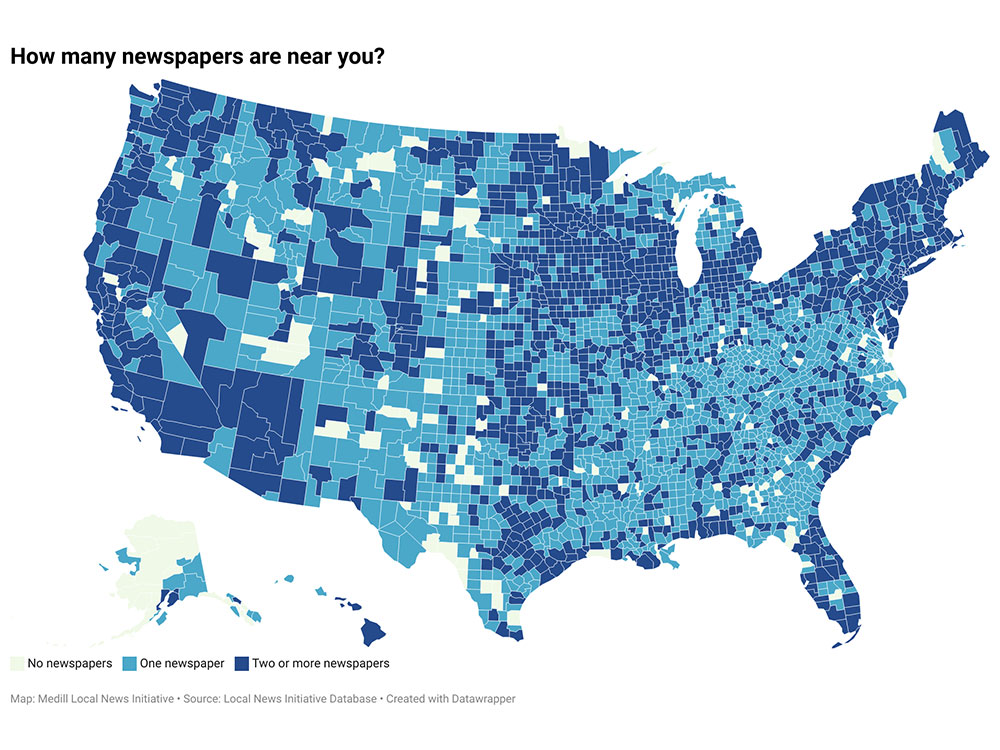Press Club panel plans to explore academic models for tackling news deserts on Monday at 6 p.m.
What is a news desert?
Find out Monday, Aug. 7, at 6 p.m. when the National Press Club hosts panelists from around the country to discuss this "landscape," and describe active solutions.
This event is open only to Club members and their guests. RSVP here to attend.

News deserts – a term used to describe communities' lack of access to the information they need to make informed decisions – are being exploited in intentional as well as subconscious ways. Traditional media are dying in smaller markets, either disappearing altogether with corporate takeovers designed to drain the advertising dollars before closing shop or curtailing their broader coverage, such as at the statehouse, due to having to shrink staff because of budget woes.
Can the spiral be reversed?
Some groups and individuals are trying to change what's happening and are testing out different models to see what can work in an industry hurt by the drop in advertising dollars.
NPC President Eileen O’Reilly plans to moderate a conversation exploring some real-time academic models to improve coverage of under-covered communities.
Scheduled panelists are:
- Teri Finneman, associate professor of journalism at the University of Kansas, and publisher/founder of The Eudora Times. A decade after the fall of the legacy paper in that city, Finneman was able to evolve her class project into a full-out online newspaper with students covering the city commission, school board, businesses, sports and more.
- Melissa Greene-Blye (Miami Tribe of Oklahoma), assistant professor at the University of Kansas School of Journalism and Mass Communications and faculty supervisor to Good Morning Indian Country and KUJH News. She has been working to improve both coverage of Native people and issues and Native representation within news organizations.
- Meg Heckman, associate professor of journalism and media innovation at Northeastern University and founding adviser of the Scope that works to connect communities, inform civic life and amplify voices overlooked by traditional media. She is aiming to solve the lack of gender equity in news organizations and the decline of the local information ecosystem.
- Pamela E. Walck, associate professor of journalism at Duquesne University, director of the university's Institute for Ethics and Integrity in Journalism and Media, and editor of American Journalism. She has been working with her students on different ways to improve coverage of Pittsburgh's Hill District, a historically Black community.
